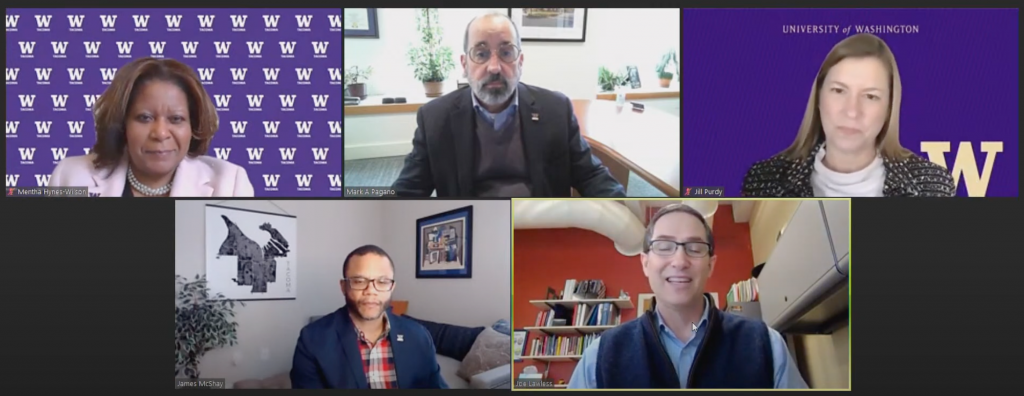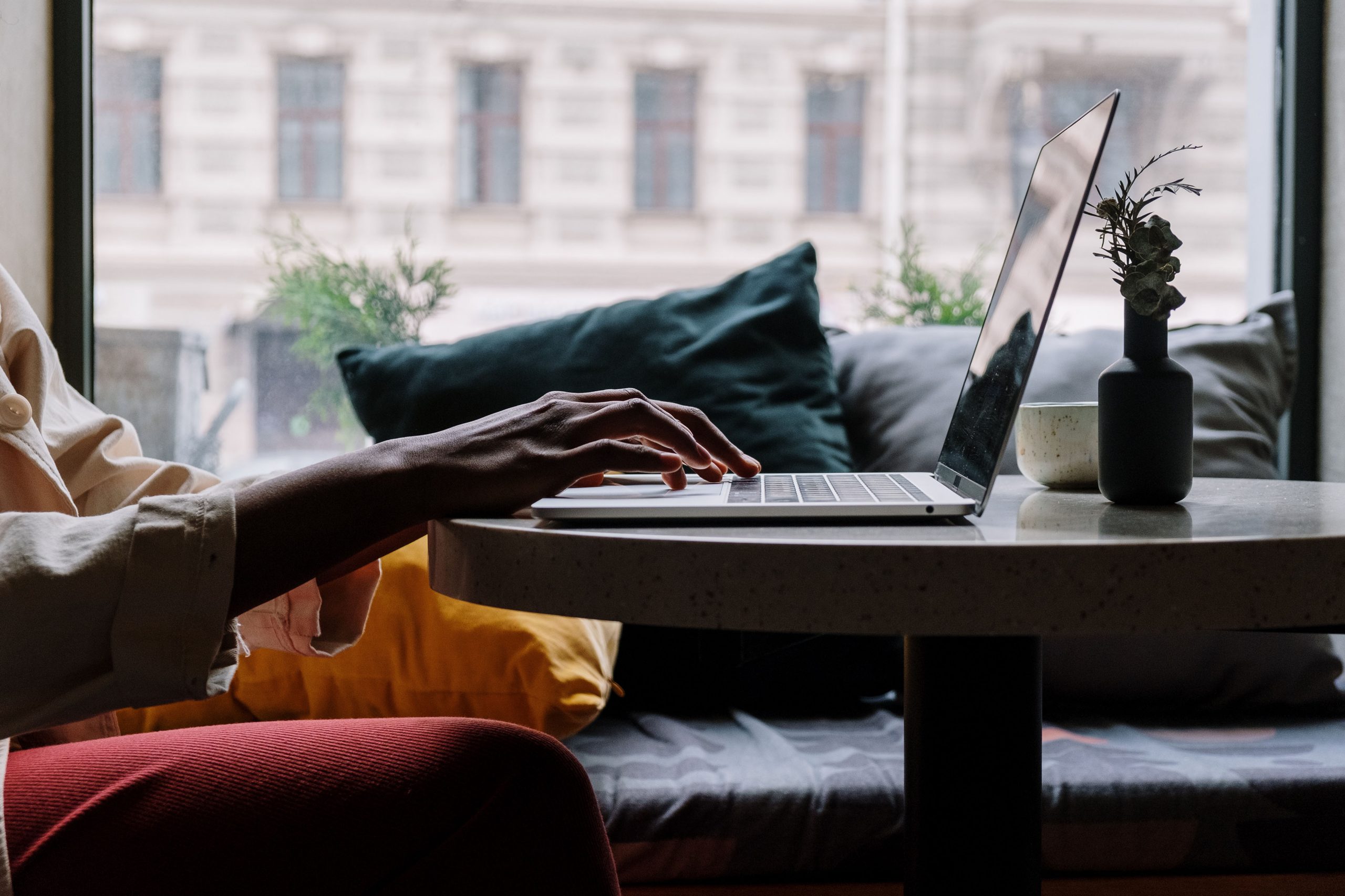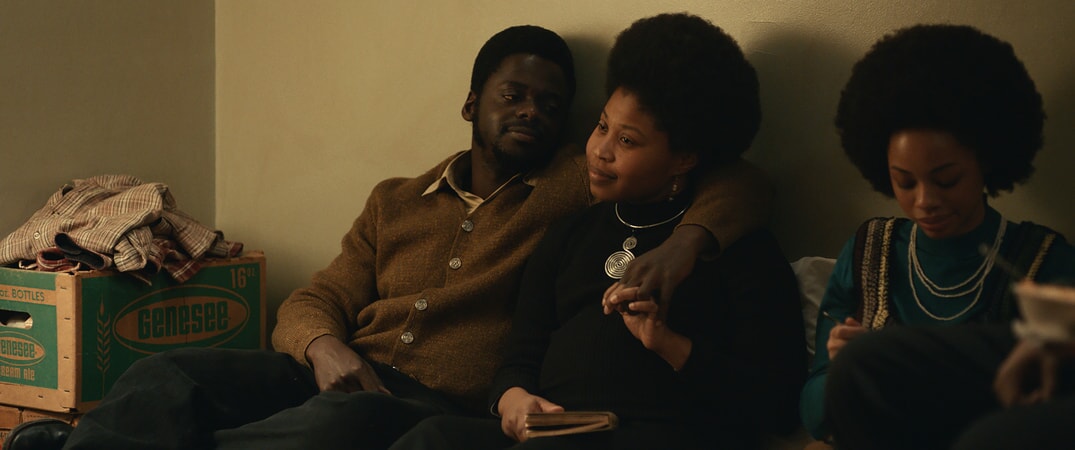Chancellor Town Hall provides updates for the new year
Chancellor Mark Pagano, along with the members of his cabinet, announce several updates on new buildings and events.
Chancellor Mark Pagano and a few cabinet members provided updates regarding the campus’ plans for proceeding through the pandemic. Although COVID may have halted much of campus operations, Pagano said that facility renovations and virtual events are still going strong.
The various construction projects on campus are going well, according to Chancellor Pagano. The construction of the Office of Community Partnerships, formerly a teaching room, is proceeding as planned and will be located on the second floor of the Dougan building.
Pagano also announced that the Tioga Snoqualmie renovation project is now underway, with most of the projects being moving related. He said these renovations would also help expand other centers such as the Center for Equity and Inclusion along with the Teaching and Learning Center.
“ … construction is proceeding so that we can expand our library, we can expand our Center for Equity and Inclusion and the Teaching Learning Center so we can provide our students with the best facilities, the best equipment, best programs possible for this new learning commons to take campus in the future,” he said.
Pagano noted that the underutilized spaces around the GWP and Birmingham — such as storage areas behind bookstores and other tenant facilities — are being converted into four state of the art laboratories.
“By putting laboratories in this underutilized space, it allows us to put much more into our campus and to Milgard Hall,” he said.
Pagano went more in-depth about Milgard hall. He said the building would include a three stories tall expansion of the business school and more labs.
“State of the art classrooms that are going to be in this building,” he said. “There’s going to be two 80 person high-tech classrooms in there, and there’s going be a new high impact practice and learning event space that can hold up to 120 people in there.”
Pagano also said they’re advocating for the spaces to be paid for by capital budgets from the states.
“Speaking of those new labs and buildings, they don’t come for free … we are advocating for a capital budget from the state for those facilities, and it is going very well,” he said.
Expanding further on the impact of the budget renovations, Pagano explained that it’s not all good news.
“There’s good news, and there’s so-so news,” he said. “The so-so news is don’t ask for new things.”
He explained further, noting that at a downturn like this, they’ve been asked by their legislators in Pierce County, their colleagues at UW Tacoma and by the Speaker of the House to try not to ask for new things to help them make ends meet with the budget they have.
Pagano then updated members of UWT about the possible budget reductions.
“We’ve been going through a budget reduction modeling,” Pagano said. “Not a budget reduction, a budget modeling that we were asked to go through by our provost last year and updated last June and updated with additional requirements this past month,” he said.
However, Pagano continued noting the renovations are seen as investments into the future.
“They see the capital projects actually, as an economic start-up, an economic activity to get things growing,” he said. “Every building like that is actually lots of more jobs for the south Puget Sound.”
Pagano noted that by funding these projects, it makes UWT more accessible to all.
“We’re convinced that our projects, our funding for UWT is an equity issue,” Pagano said. “To provide access to students in the south Puget Sound, students that have not been able to have access to the University of Washington in the past,” he explained further.
Vice-Chancellor for Student Affairs Mentha Hynes-Wilson said they would create a space where all community members and, most particularly, students can be seen, heard, validated and encouraged to seek understanding and co-create positive change.
Vice-Chancellor for Equity and Inclusion Dr. James McShay asked students to reflect on Dr. Martin Luther King’s message and announced an upcoming collective.
“As we move into a month where we honor the life, works and legacy of Dr. MLK, I believe Dr. King would want us to reflect on this question: what am I doing in my everyday life to educate myself about white supremacy, systemic racism, and economic injustice,” he said. “And how are we using this knowledge on our work on campus and in the community to create a community that really shows values towards the ideals of Dr. King.”
McShay also announced an event that he said will help create a campus that models the values of Dr. King.
“We will be hosting the Dope Black Collective here on Feb. 4,” he said. “They’re a group of black feminist scholars who will be … holding a panel about abolitionist healing and teaching,” he said.
Executive Director of the Center for Leadership and Social Responsibility Joe Lawless was also present to provide updates regarding winter enrollment numbers.
“Our winter 2021 enrollment is down just a little bit,” he said. He explained further, noting that enrollment is down 63 students with a total enrollment of 5,173 students.
Lawless then gave updates on how UWT is proceeding according to Governor Inslee’s Healthy Washington Plan and noted that while students and faculty are allowed on campus, they are each required to comply with safety guidelines.
Students can reserve an appointment at www.tacoma.uw.edu/uwt/uuf/individual-study-spaces. Husky IDs will be required to access any of the buildings and student ambassadors will be on campus to assist students and help them follow safety regulations.
He also noted that those who do not wish to enter the buildings for safety reasons but still want to be on campus could find free wifi in the Cragle Parking Lot.
Pagano wrapped things up by urging members of the UWT community to think of ways in their everyday lives to make the campus better for all.
“We also have to look inwards as the UWT community, understanding the urgency of this moment and fervently commit to contributing to a campus environment that is accessible, inclusive, equitable, and just for all its members,” he said.



